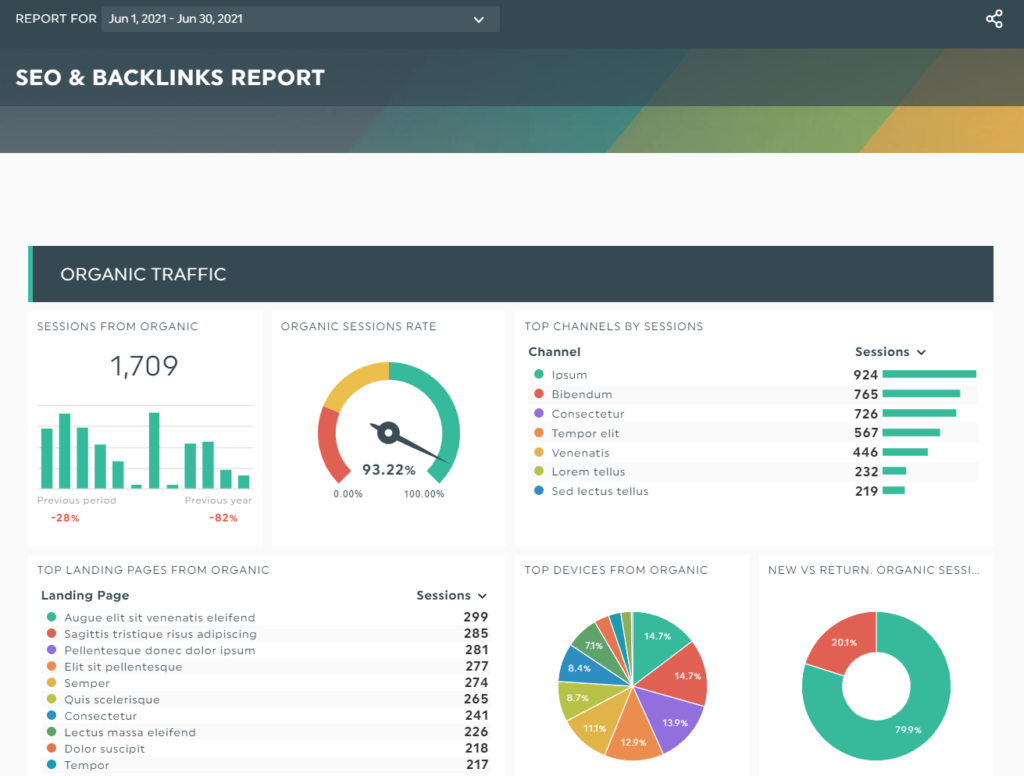Tracking your e-commerce SEO performance is crucial to understanding what’s working and where you need improvement. Without proper tracking, you could be missing out on valuable insights that can help boost your rankings, traffic, and sales. Let’s break down the key ways to measure your SEO success and ensure your online store is performing at its best.
1. Use Google Analytics for Traffic Insights
Google Analytics is your best friend for tracking SEO performance. It helps you understand:
✔ How much organic traffic your store is getting
✔ Which pages are performing the best
✔ Your bounce rate and time on site
✔ How users are navigating through your store
How to Track:
✅ Go to Google Analytics > Acquisition > Overview
✅ Click on Organic Search to see SEO traffic data
✅ Analyze which keywords and pages bring the most visitors
🔗 Need help setting up Analytics? Our SEO team can guide you!
2. Track Keyword Rankings with SEO Tools
Knowing where your website ranks for important keywords is essential. Tools like:
✔ Google Search Console (FREE)
✔ Ahrefs
✔ SEMrush
✔ Moz
How to Track:
✅ Enter your website URL in an SEO tool
✅ Track how your rankings change over time
✅ Identify new keyword opportunities
🔗 Want an expert keyword strategy? Check out our content writing services for optimized content!

3. Monitor Click-Through Rates (CTR) & Impressions
Your CTR shows how often people click your store’s link in search results. A low CTR means:
❌ Your title tags and meta descriptions aren’t engaging
❌ You aren’t using rich snippets (like star ratings)
How to Improve CTR:
✔ Write compelling meta descriptions
✔ Use power words like “Best,” “Exclusive,” “Limited Offer”
✔ Add structured data (Schema Markup)
🔗 Learn more about Schema Markup for E-commerce in our SEO guide.
4. Analyze Your Backlink Profile
Backlinks (links from other sites) are a key ranking factor. Strong backlinks:
✔ Improve domain authority
✔ Boost search rankings
✔ Drive referral traffic
How to Track:
✅ Use Ahrefs, Moz, or SEMrush to check backlinks
✅ Identify toxic links and disavow them
✅ Focus on quality over quantity
🔗 Want powerful backlinks? Our SEO experts can help with link-building strategies!

5. Measure E-commerce Conversions from SEO
SEO isn’t just about traffic—it’s about sales! Tracking conversions helps you understand:
✔ How many visitors turn into buyers
✔ Which pages drive the most sales
✔ Your revenue from organic search
How to Track:
✅ Set up Goals & E-commerce Tracking in Google Analytics
✅ Track organic conversions under Acquisition > Conversions
✅ Compare SEO vs. Paid Ads vs. Social Media Traffic
🔗 Need conversion optimization? Our web development team can improve your store’s checkout process!
6. Monitor Page Speed & Mobile Performance
Google ranks fast websites higher—and slow pages lose sales! A delay of just 1 second can drop conversions by 7%.
How to Track:
✅ Use Google PageSpeed Insights
✅ Check Core Web Vitals in Google Search Console
✅ Optimize for mobile users
✔ Compress images
✔ Use a CDN (Content Delivery Network)
✔ Reduce unnecessary JavaScript & plugins
🔗 Need a faster site? Check out our web development services!
7. Track Local SEO Performance (If You Have a Physical Store)
If you run a local e-commerce business, tracking Google My Business insights is key.
✔ Check Google My Business Analytics
✔ Monitor local rankings for city-based searches
✔ Track calls, website visits, and directions requests
🔗 Want to rank higher locally? Explore our Local SEO services!
8. Watch for Technical SEO Issues
Technical SEO problems can prevent search engines from ranking your site. Common issues include:
❌ Broken links & 404 errors
❌ Missing meta tags & duplicate content
❌ Slow-loading pages
How to Fix:
✅ Run an SEO audit using Google Search Console
✅ Fix crawl errors & broken links
✅ Use a site-wide SEO checklist
🔗 Need a full SEO audit? Contact our SEO experts today!
Final Thoughts: Track SEO Performance & Increase Sales 🚀
Tracking your e-commerce SEO performance is the key to boosting traffic and sales. Use Google Analytics, SEO tools, and technical audits to stay ahead of the competition.
📞 Need expert SEO help? Contact Social Media Max today!
✅ Call: 0161 399 3517
✅ Email: Syed_66@hotmail.com
✅ Visit: Social Media Max for a FREE consultation!
💡 Want an in-depth SEO strategy? Let’s chat and grow your online store together!
